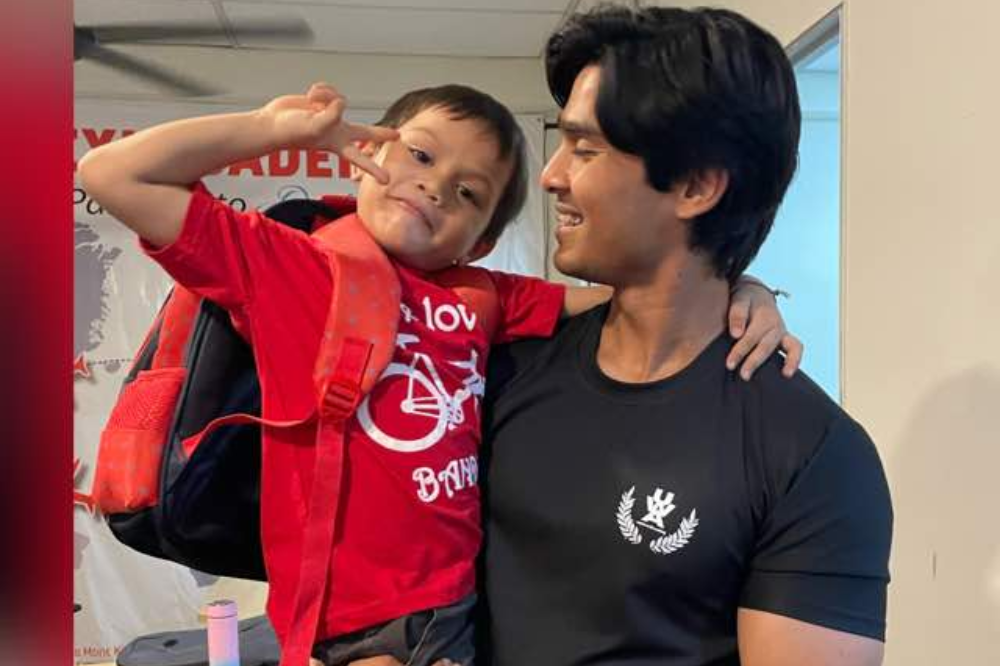Surviving hate: Refugee shares childhood struggles with discrimination, bully
On social media, Rahman has faced comments telling him to ‘go back to his country.

SHAH ALAM – This World Refugee Day, Rohingya refugee in Malaysia, Rahman Iman Hussein recounts his grieving childhood experience in Malaysia, describing discrimination and bullying as a normal part of being a refugee.
Prince (not his real name) said he frequently faced derogatory remarks indicative of racism, a common form of bullying for many Rohingya children.
"It affected my childhood for a while, but I managed to recover.
"There is a lot of racism imposed on us just because of our skin colour and where we came from, where the only way to escape is to keep our identity hidden," he said.
He concealed his identity until he was 22, finally revealing it at university. To his surprise, his university friends were supportive, a stark contrast to his childhood experiences.
"Adapting to Malaysian culture has been somewhat easier for me because I was born here and have lived here for 29 years. I speak the language well, which helps avoid some bullying.
“However, once people know my ethnicity is Rohingya, they often have negative things to say about me," he added.
On social media, Prince has faced comments telling him to ‘go back to his country.’ He noted that while hateful remarks are common, they do not usually target other races, likely to avoid causing greater controversy.
He also expressed caution about speaking on these issues, as even raising awareness often attracts hatred, highlighting that refugee stereotypes are both a national and international problem.
"As stateless refugees, we don't have a common ground to stand on with anyone. This gives us a sort of freedom in our behaviour and speech," he said.
Despite the hardships, Prince has built resilience against the hate. He recalled the worst bullying during his school years, where he was often isolated and forced to eat standing up because his peers would not accept him.
"We are stateless and refugees, so we don't have a common ground to stand on with anyone and this gives us a sort of freedom in how we want to behave and what we can say and do; no one is there to stop us," he said.
A turning point came when he moved to the Dignity for Children Foundation, a school community for refugees. There, he had a more bearable and enjoyable experience.
He excelled academically, taking his Sijil Pelajaran Malaysia (SPM) as a private candidate in 2013 and received a scholarship from Taylor's College. He later accepted an offer from Monash University.
"When I was young, I did try to hide my identity a lot but decided to no longer do so during my college studies.
"I hesitated at first because I did not want to go through what I went through before—to go through discrimination and hateful remarks again.
"When people assumed that I was Indian, I just agreed since admitting that I am a Rohingya refugee would be ‘humiliating’.
"In my final year of university, I came out since I thought it was not okay to keep staying hidden and far away from reality, not facing it because this is only what a coward does.
"I embraced who I was in 2017 and to my surprise, everyone was supportive of that and nobody used it against me at that time, unlike now, where my heightened social media presence has lured such opposing sentiments," he said.
Prince now aims to normalise being Rohingya and a refugee, promoting the idea that it should not be a source of shame.
"I don't want my community to feel labelled negatively. Labels can be removed or worn as a badge of honour to show we are survivors of the hardest times. I am happy to be in this position," he said.
As a refugee rights activist, social media influencer, model, actor and teacher, Prince encourages other youths in his community to follow his example and make a positive impact in host countries like Malaysia.

For the past eight months, he has been raising awareness through his TikTok and Instagram accounts under the username @itsprince7_.
Prince also appeared in a Ted Talk titled ‘The Invisible Among Us’ discussing the struggles of refugees and hoping to help them better cope with their challenges while advocating for the restoration of their basic rights in countries free from issues like genocide and warfare, such as in Arakan, Myanmar, his place of origin.











